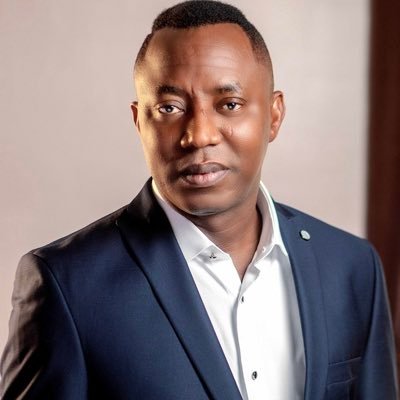Human rights activist and former presidential candidate, Omoyele Sowore, has strongly criticised the Department of State Services (DSS) following reports that it is screening lawyers nominated for the prestigious title of Senior Advocate of Nigeria (SAN).
Sowore made his reaction known via a post on his X (formerly Twitter) account on Tuesday, describing the development as yet another sign that the country’s institutions have collapsed under the weight of political interference.
His criticism came a day after Aare Olumuyiwa Akinboro (SAN), a respected legal practitioner, raised concerns over the reported involvement of the DSS in vetting those listed for elevation to the SAN rank.
According to Akinboro, the move is not only unconstitutional but also poses a serious threat to the independence of the legal profession in Nigeria.
In his words, “This development is illegal and unacceptable. It undermines the rule of law and the self-regulating nature of the legal profession. The idea of an intelligence agency vetting Senior Advocates is a dangerous precedent.”
Reacting, Sowore expressed dismay at what he described as the erosion of courage and conviction in Nigeria’s institutions, especially the judiciary.
“Nigerians, at nearly every level, have capitulated, weighed down by the sheer force of their individual and collective weaknesses,” Sowore wrote on X.
“The collapse of courage and conviction is everywhere you look. Imagine the DSS now screening Senior Advocates of Nigeria. The so-called guardians of justice are reduced to seeking clearance from the very instruments of oppression. C’est fini. Nigeria is down!”
At the time of this report, the DSS had not issued any official statement confirming or denying the allegations. Efforts to reach the agency for comments were unsuccessful.
The controversy began shortly after the Legal Practitioners’ Privileges Committee (LPPC), the body responsible for conferring the SAN rank, announced a list of 57 nominees for the 2025 elevation. The LPPC, chaired by the Chief Justice of Nigeria, is mandated to follow a rigorous internal process that includes review of applicants’ legal career, ethics, and public contributions.
While the LPPC does conduct background checks, it is unusual—and highly controversial—for the DSS or any security agency to be involved in the vetting of nominees for a purely legal title.
Legal experts and civil society organisations have also begun weighing in on the issue. Some argue that involving the DSS in such a process undermines the independence of the judiciary, while others fear it may be used to settle political scores or silence dissenting voices within the legal profession.
A senior lawyer who preferred anonymity said, “If this trend continues, it won’t be long before judges and legal professionals are selected based on political loyalty rather than merit. This would completely destroy what remains of Nigeria’s justice system.”
The rank of Senior Advocate of Nigeria is the highest title in the legal profession, equivalent to the rank of Queen’s Counsel (QC) in the United Kingdom. It is awarded to lawyers who have demonstrated excellence in legal practice, contributed to the development of the law, and maintained high ethical standards.
In recent years, the process of awarding SAN has come under scrutiny, with allegations of favouritism and politicisation. Critics say the current controversy further undermines public confidence in the legal system.
This is not the first time Sowore has criticised state institutions. As a longtime advocate for democracy and good governance, he has often used his platform to speak against the abuse of power and what he sees as increasing authoritarianism in Nigeria.
Sowore, who ran for president under the **African Action Congress (AAC)**, was arrested and detained multiple times in recent years for organising protests and criticising the government. His supporters see him as one of the few remaining voices willing to challenge the status quo.
Meanwhile, the legal community is watching closely to see how the LPPC and other authorities respond to the allegations. Some senior lawyers are calling for a transparent explanation, while others have urged the Nigerian Bar Association (NBA) to take a firm stand against any external interference in the SAN selection process.
Akinboro’s initial statement has already sparked debate within legal circles, with many calling for a full investigation into whether the DSS was officially involved and under whose instruction.
As Nigerians await clarity on the matter, the broader concern remains: is the legal profession losing its independence, and are state institutions being misused to influence who rises to the top of the justice system?

